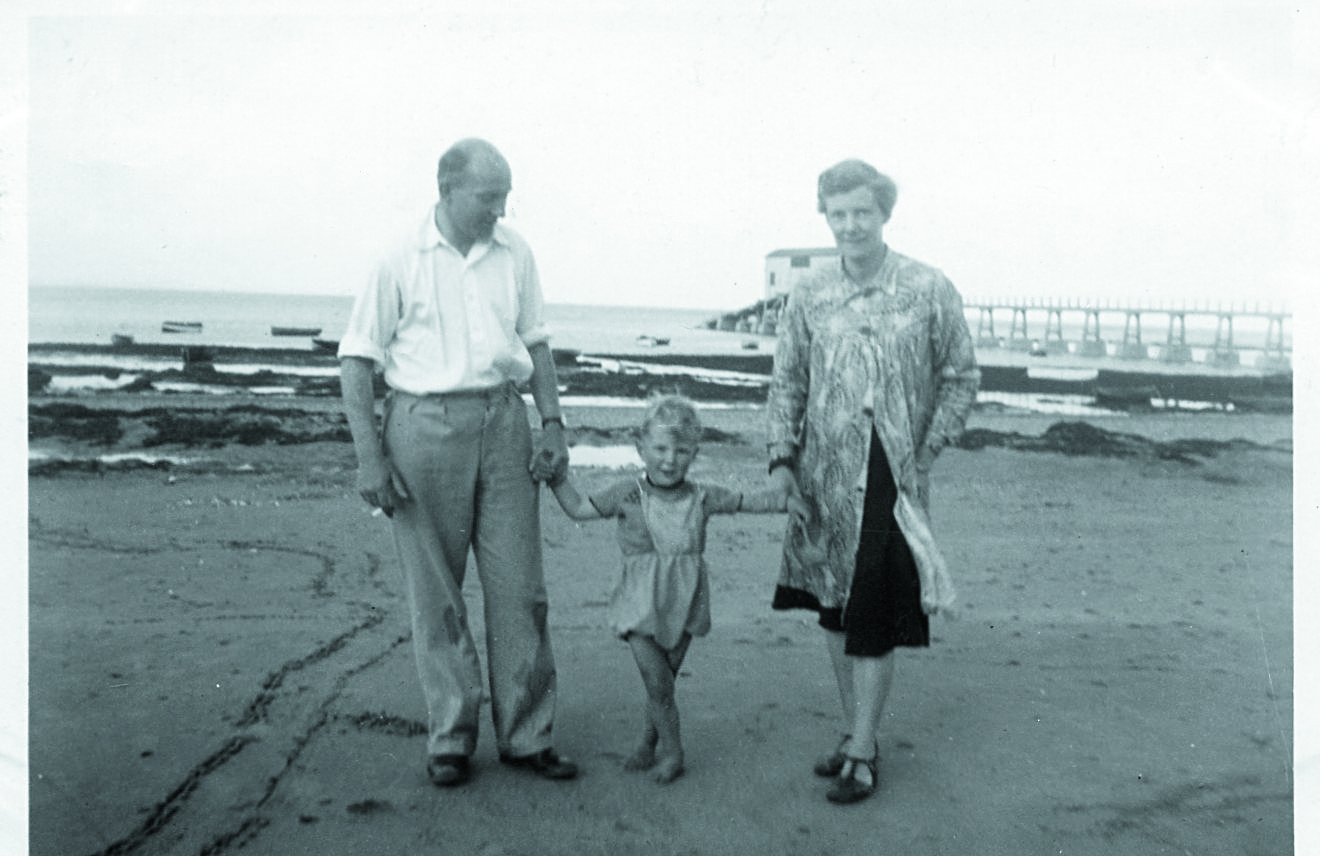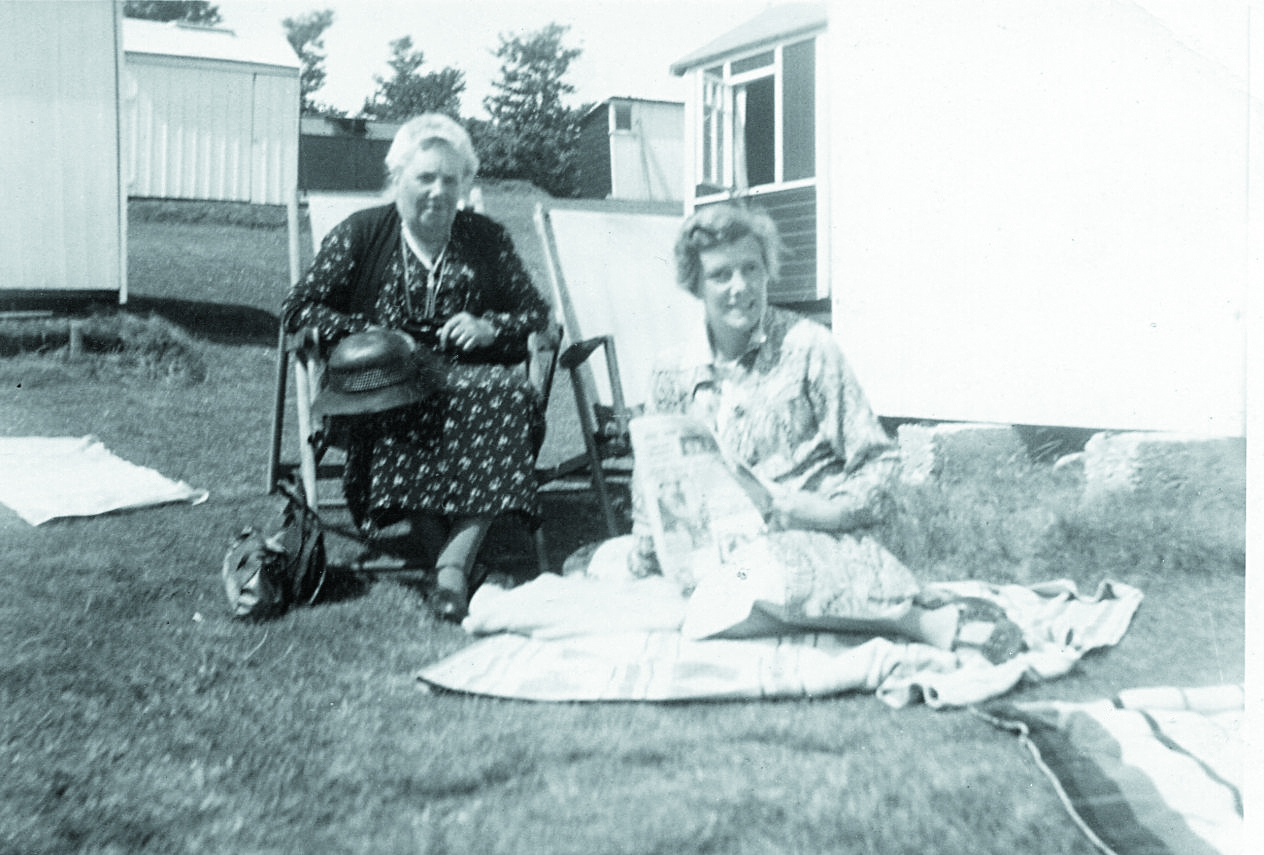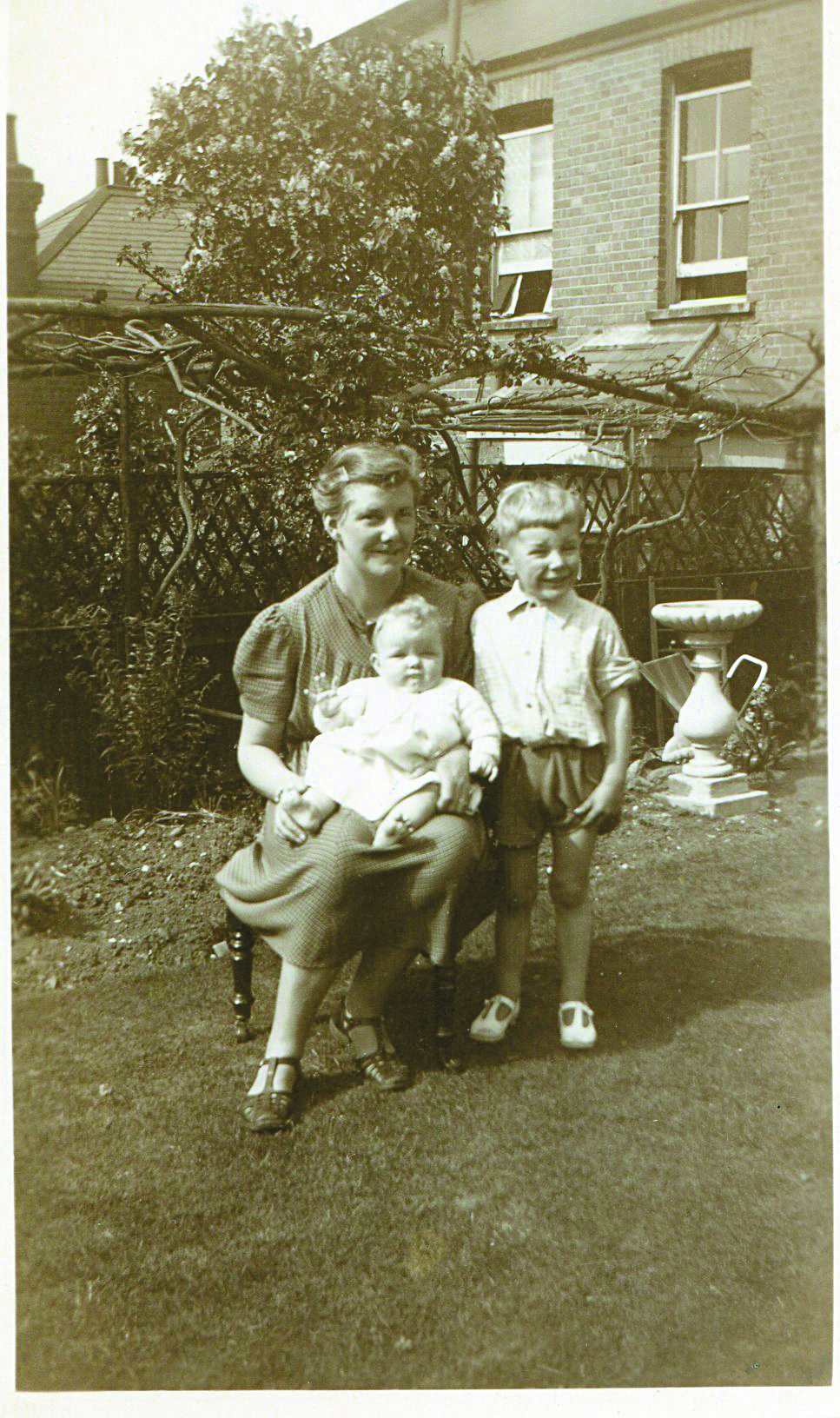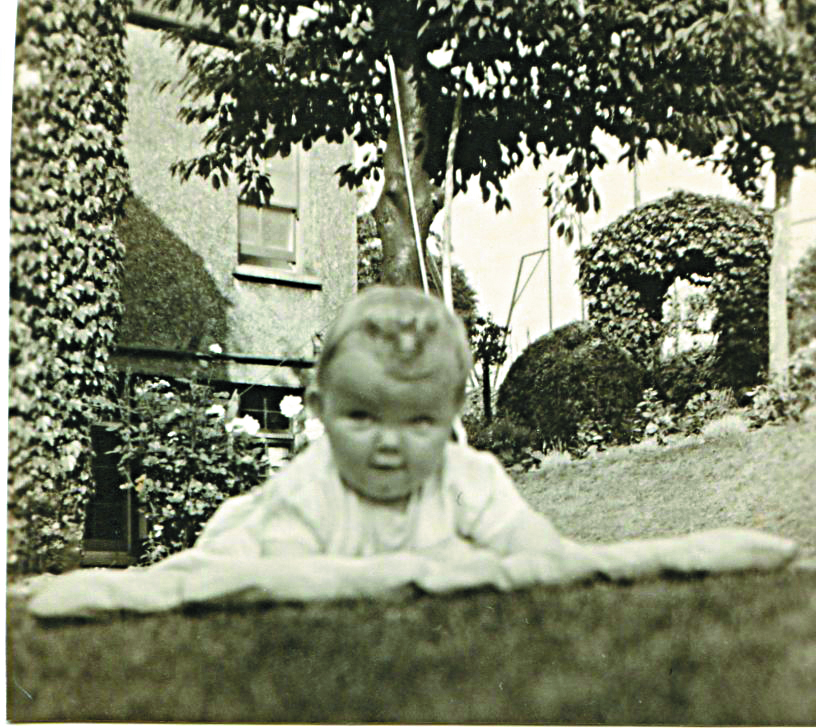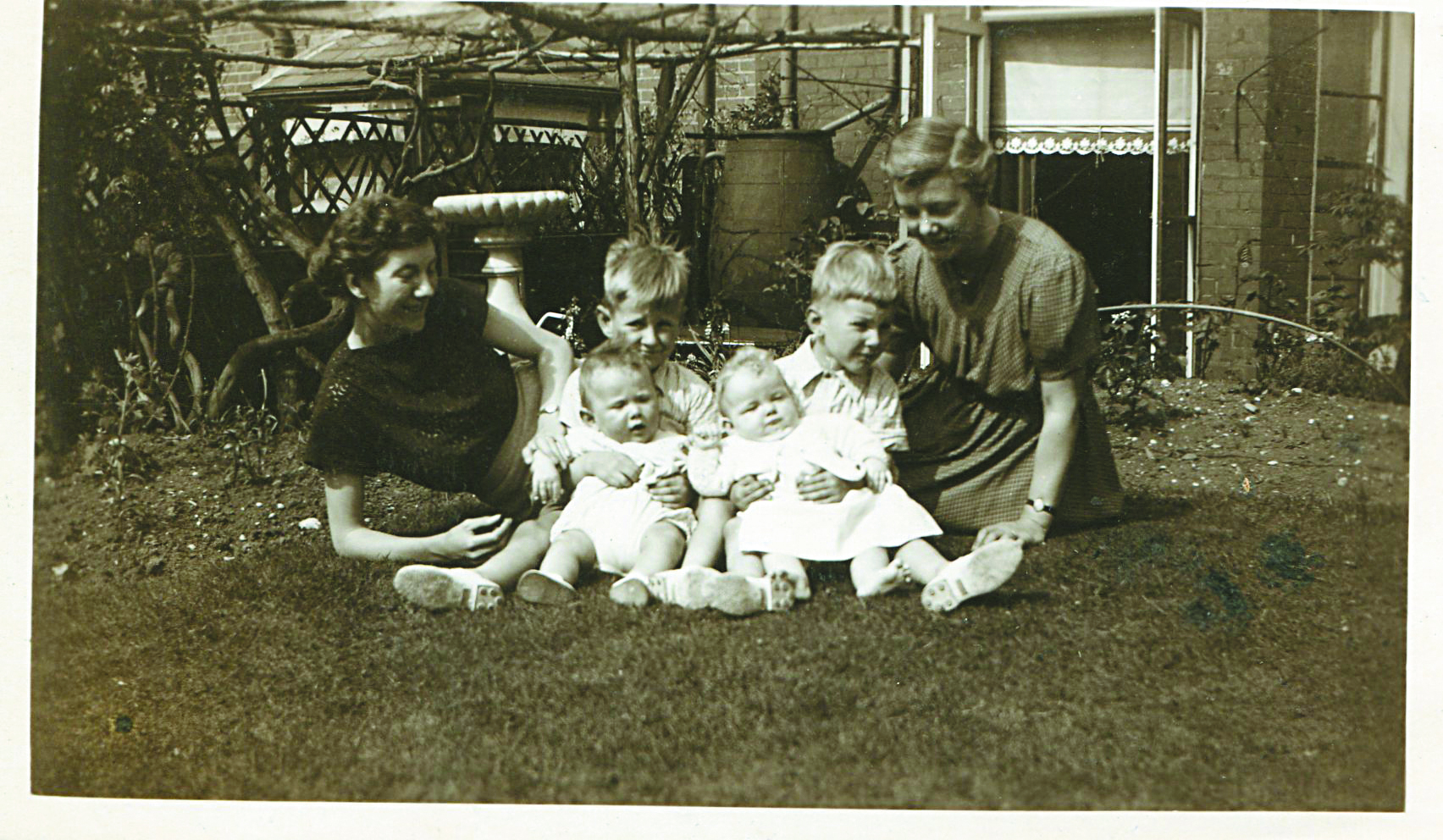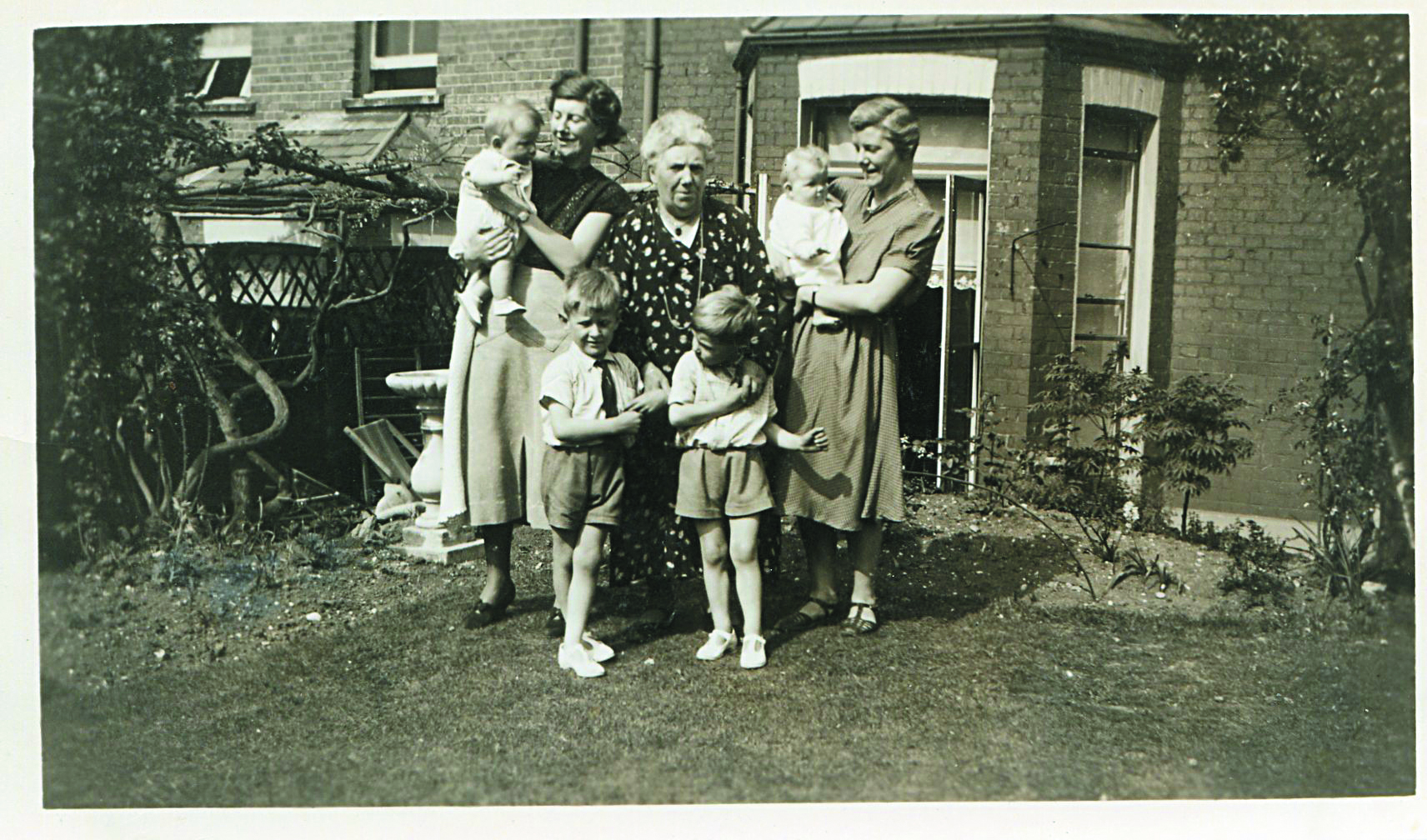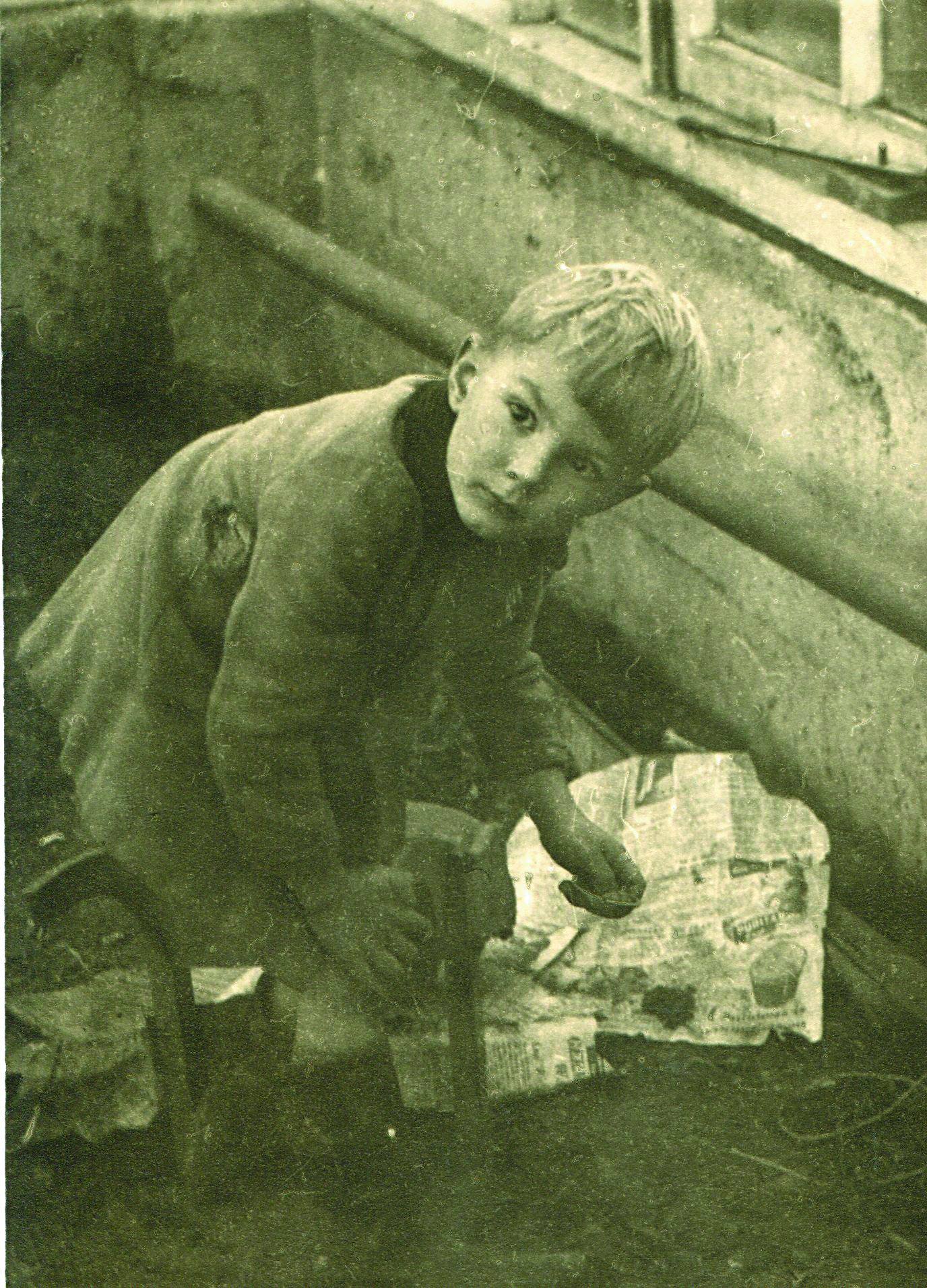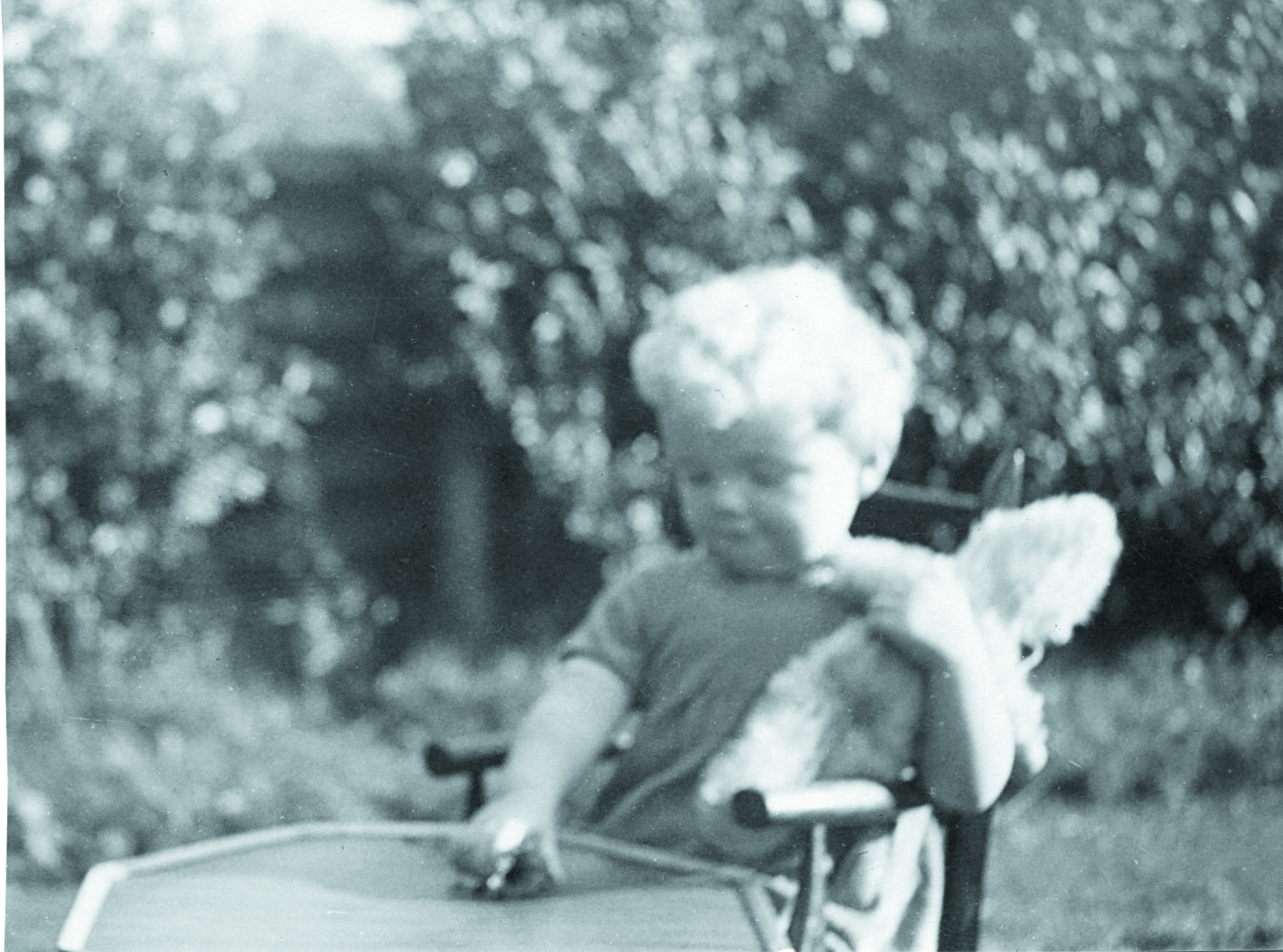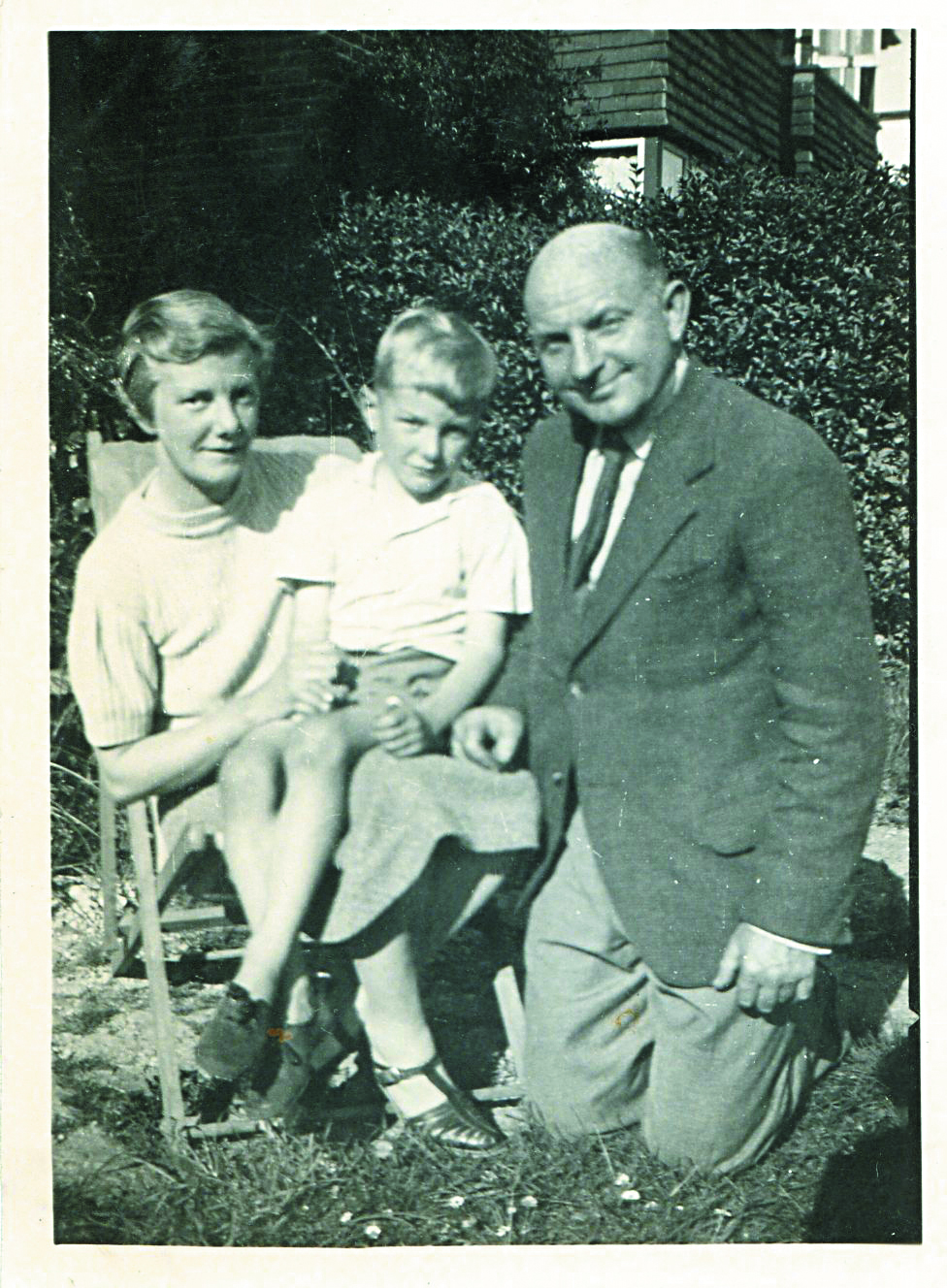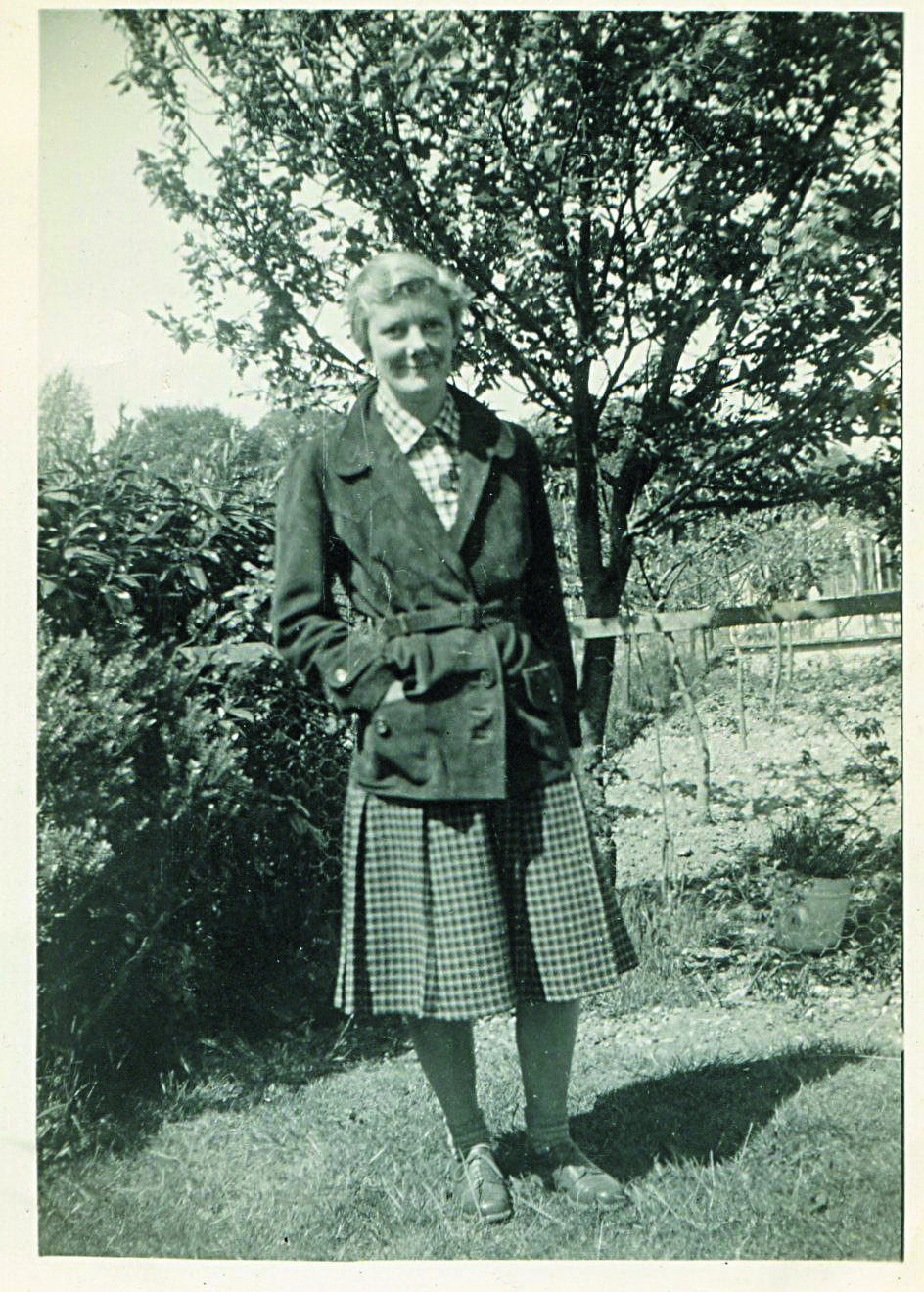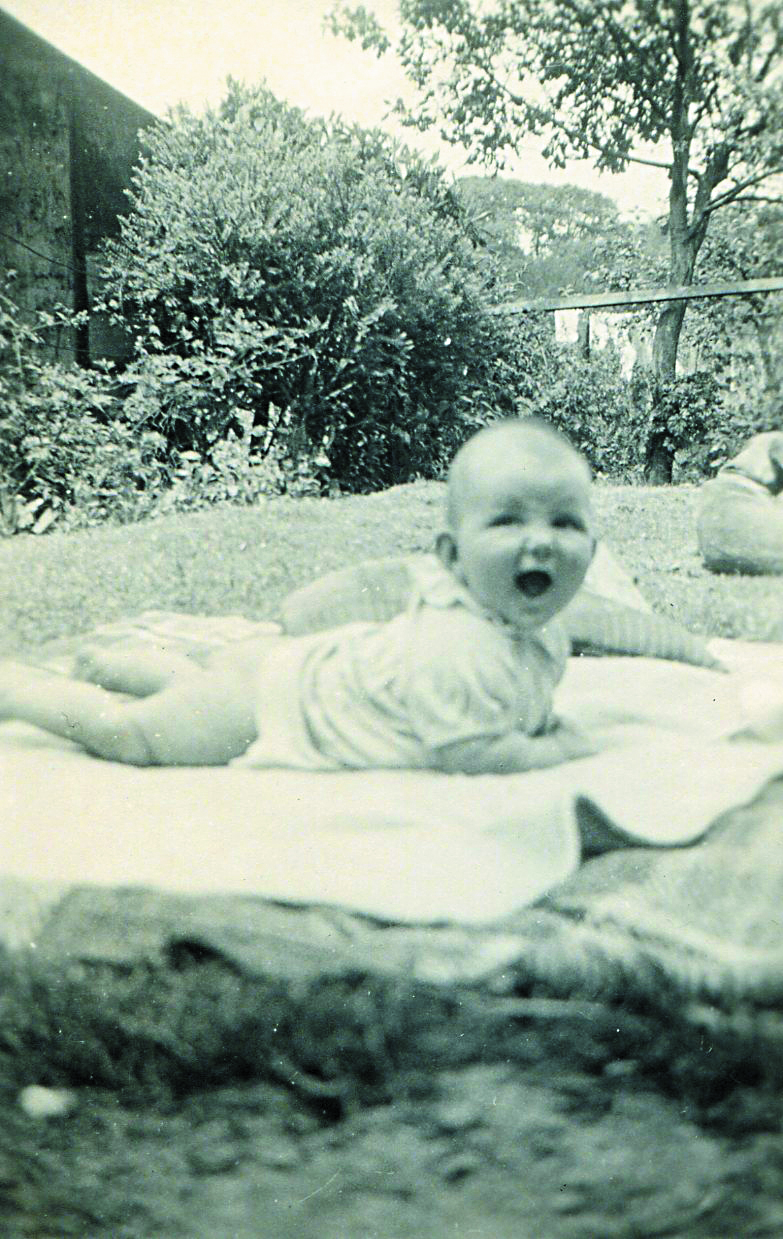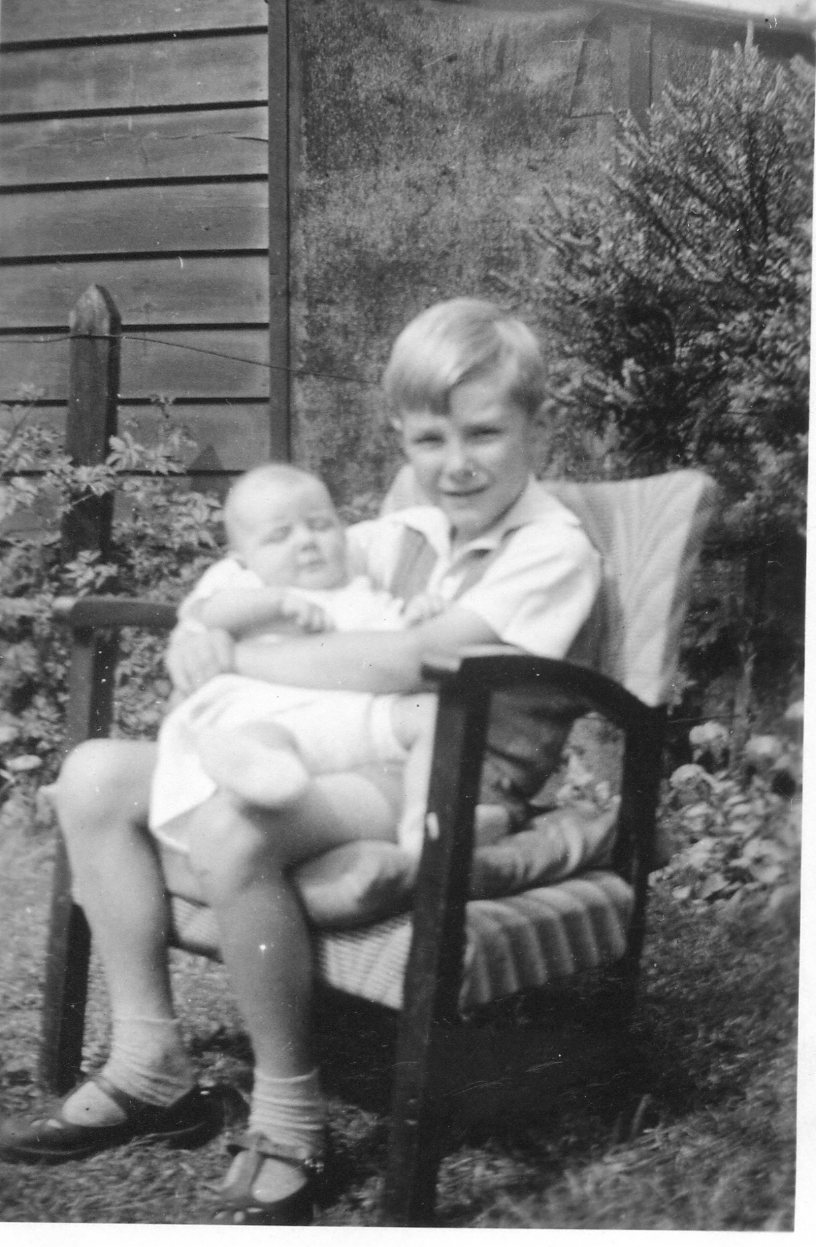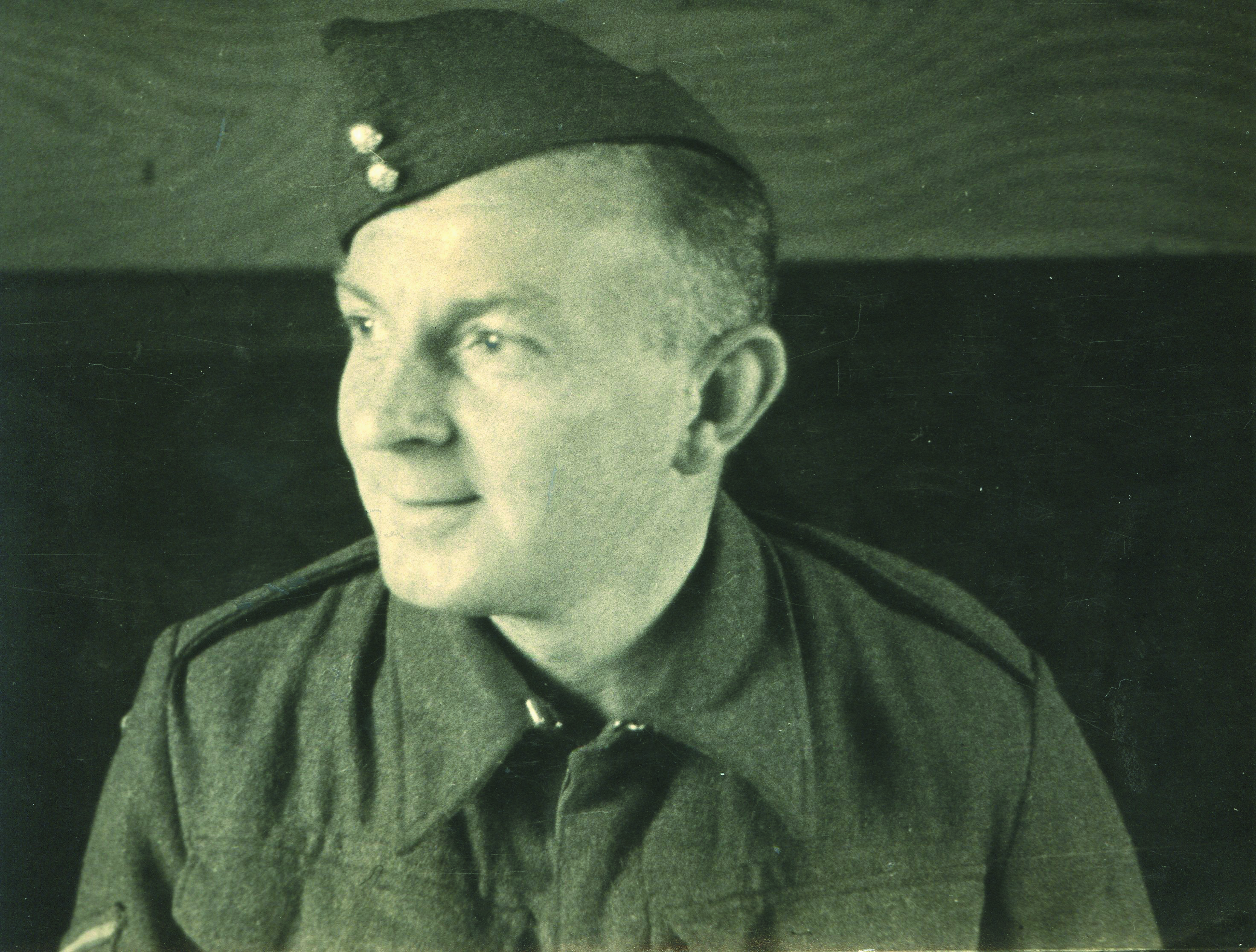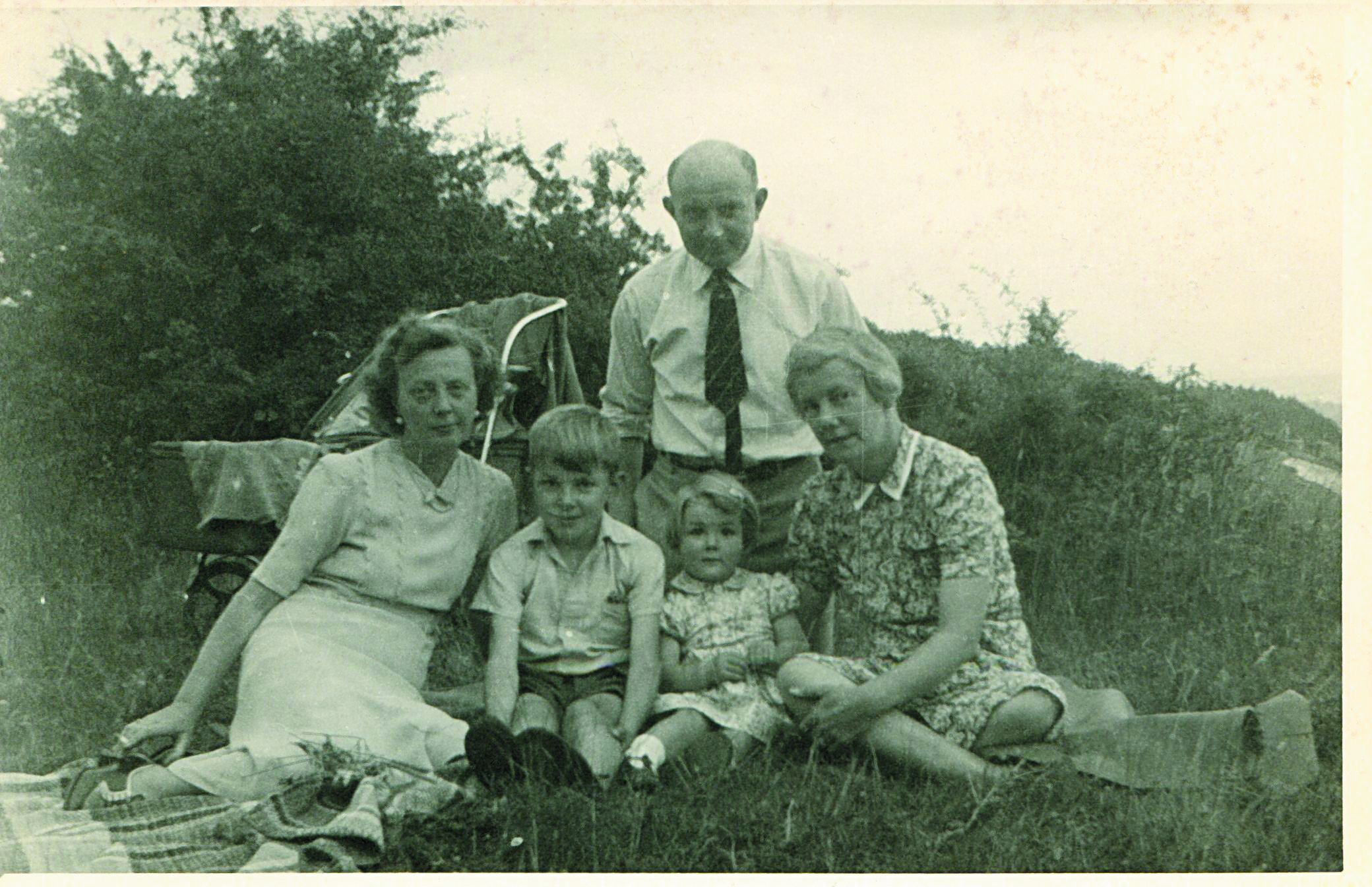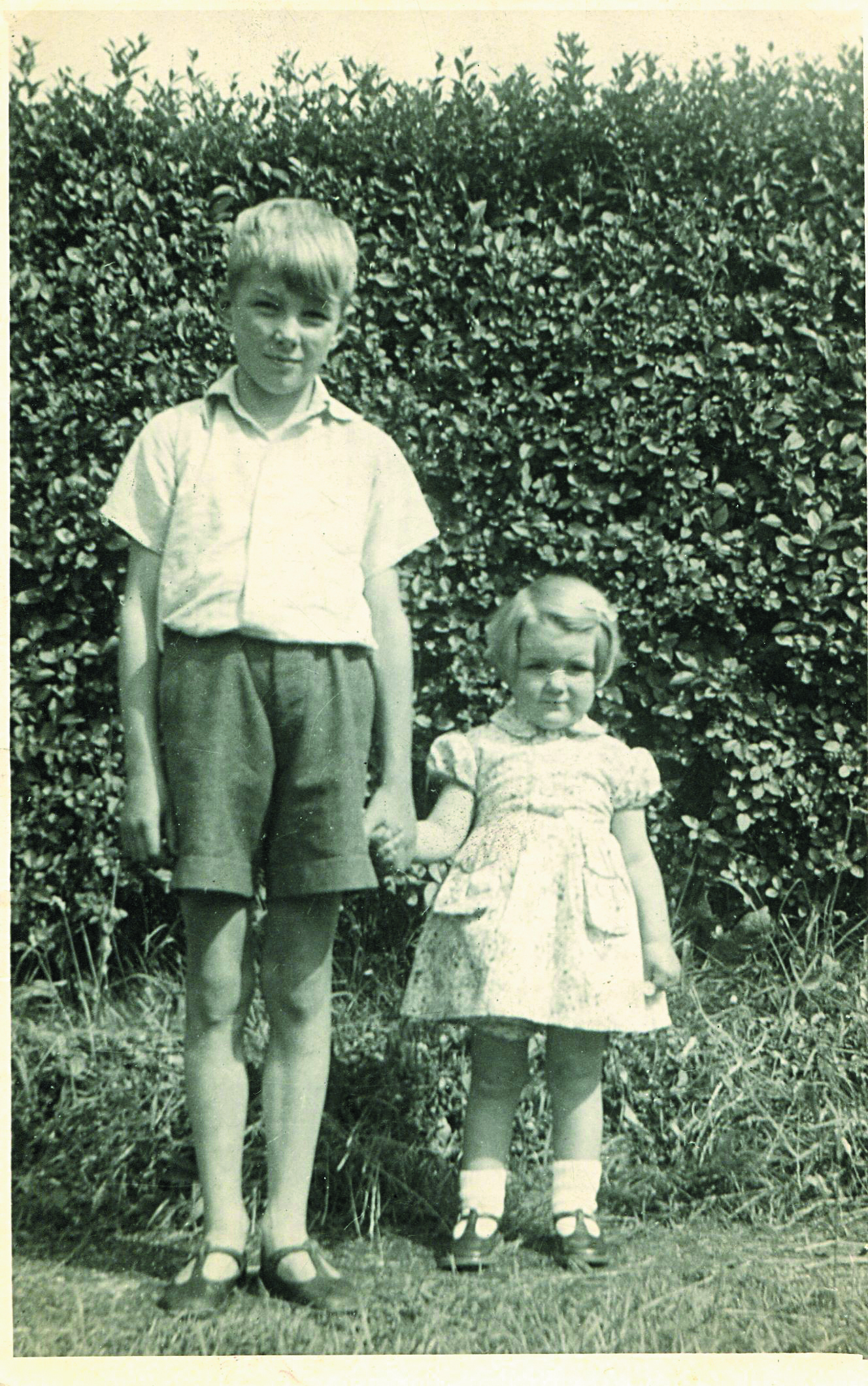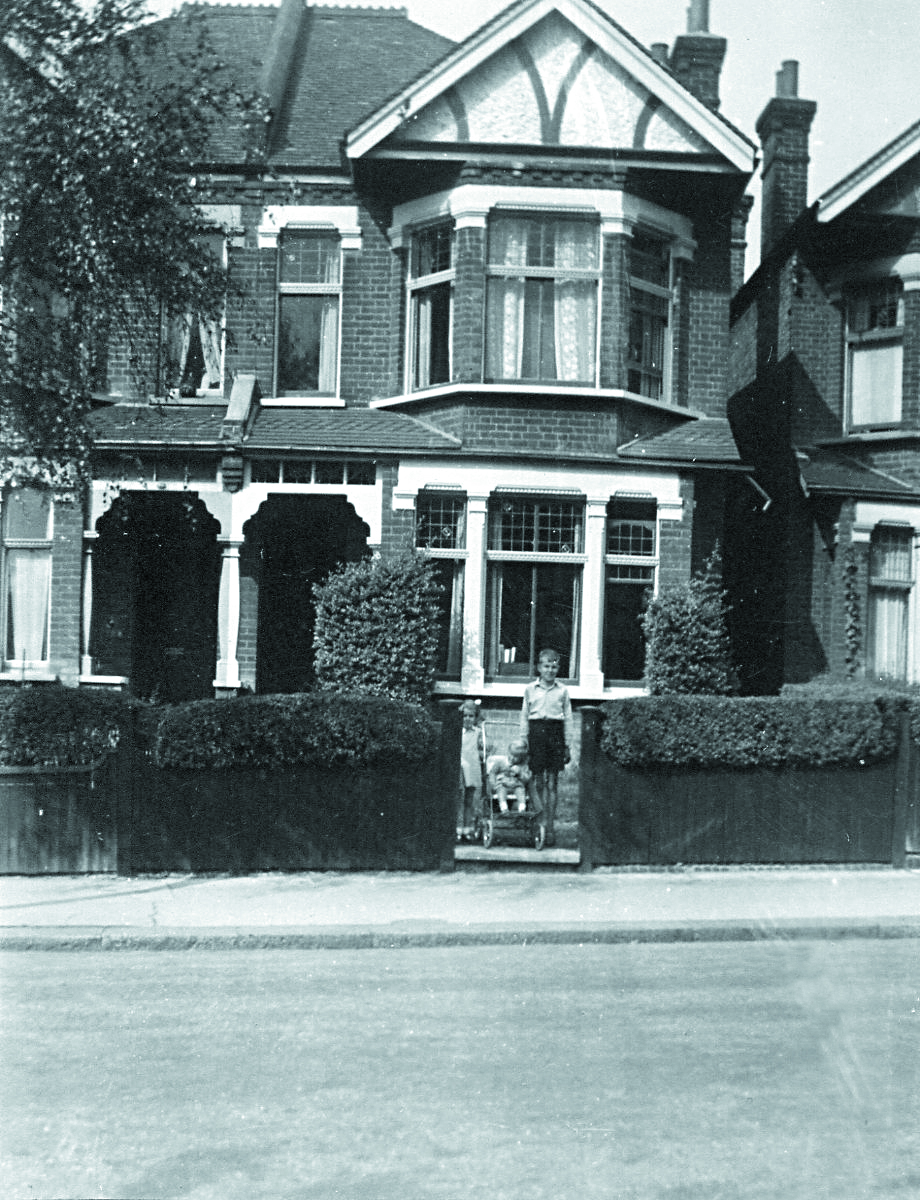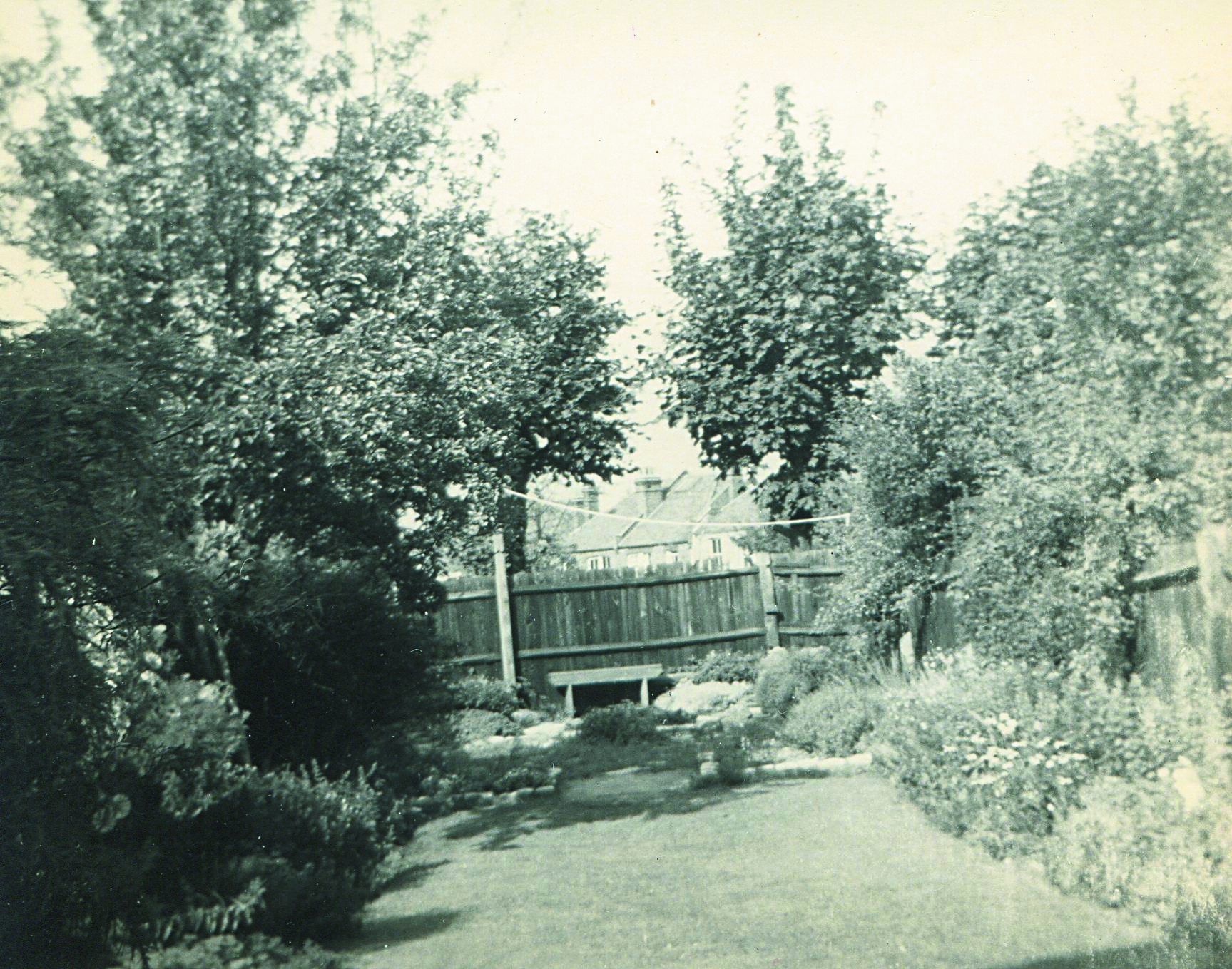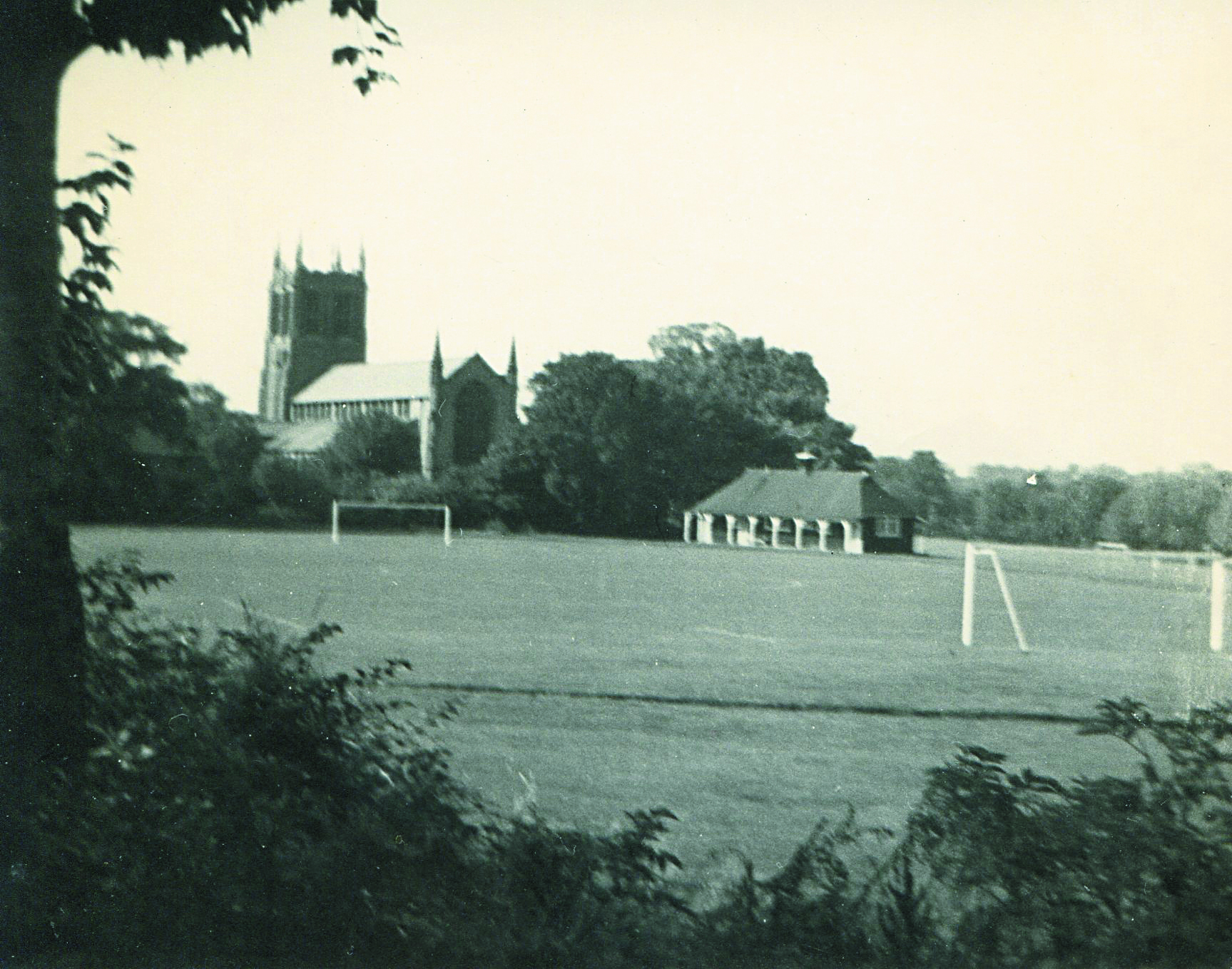From Marriage to the End of the War: Edie’s War – Part Two
1939 was the year we rented a house in Lane End for our holidays, and three families stayed there, Rene with Frank and Michael, Phyllis with Pip, Jackie and Derek, and Doug with me and Chris – Photo 127. I was pregnant again at this time. The children did not always agree with each other and Michael seemed to spend most of his meals under the table, nevertheless it was an enjoyable holiday. Mother seemed to be staying somewhere as well and by the look of it we hired a hut and hammock chairs – Photo 128.
Soon after this holiday on 19th August 1939 I produced unexpected triplets and startled everybody, including myself. They were so early and immature that two of the girls didn’t survive, but the first one, Ann, weighing only 1 1/2 lbs, was cared for by the nursing sisters in a nursing home near The Crystal Palace and miraculously survived.
All this time, talk of war was imminent and by the 2nd September 1939 all children were expected to be evacuated, so Christopher, then just 3 and me went straight from the nursing home taken by Charles Butterfield down to Kingswood, Surrey, where my sister Doris and her husband Harold Collins lived, leaving Doug behind with Mother and Winnie, because he had his job to do, and Ann the surviving triplet in the nursing home, because she was too small to be moved. They covered her in cotton wool and fed her with a fountain pen filler.
On the 3rd September 1939 Mr Chamberlain announced that the United Kingdom had declared war on Nazi Germany. Almost immediately there was an air raid siren and I don’t think any of us moved a muscle, but it was a false alarm. Then began the phoney war when nothing seemed to happen, until after a week or two I suddenly had the most terrible pains in my stomach, which blew up as if I was about to have triplets again and was rushed to Redhill hospital, where the doctors betted on what the reason was: an abscess?: a fourth baby?, what quads?!!. In fact it turned out to be an ovarian cyst which was bleeding internally and filled a basin, so no wonder I was so large. Anyhow, I recovered quickly, so returned to Kingswood.
As the phoney war was continuing, we returned to “Mount Edgcumbe” early in 1940, but by April 1940, the Germans attacked Norway and Denmark and started the Blitzkrieg to the West and overran Belgium, Holland and eventually France, until they reached the channel ports and our armies were trapped in Dunkirk, from where many of them were evacuated by sea and many died. Then of course we all knew it was England’s turn next.
Photo 129 is of Chris and I with Ann in the garden of “Mount Edgecumbe” taken during this time, and is one of the earliest pictures of Ann together with photos (130/132) showing Ann alone and with Bobby and her Boys.
On the 13th August 1940, the German Luftwaffe bombed our airfields and started the Battle of Britain and on the 7th September the docks were set alight by fire bombs which started the blitz of London. Doug and I had a good view of this event, because as “Mount Edgcumbe” was situated on a hill at Honor Oak and us being in the garden we suddenly saw and heard what looked like an army of flies over the East where the docks were. We soon realised what they were, especially when the area burst into a mass of flames. Soon the crowds of sightseers came up the hill and stayed until dark, but quickly rushed away when bombers found their way up the river lit by the flames and started bombing London.
One man was so scared, that he came in our house and wanted to come down our cellar where we all were, five of us and two children, the couple from next door and four of their friends. Doug kept going outside, but was warned by a warden to go in because of the shrapnel from our anti-aircraft guns. Then a fire bomb landed under the oak tree at the back of the garden, so we all rushed up with a stirrup pump, which accidentally sprayed Mr Arnold from next door. Somebody kicked the fire bomb and it went out, so that was a bit of fun.
This incident also reminds me of how our piano was damaged by shrapnel. Whilst we were staying at “Mount Edgecumbe”, we used the dining room as our lounge and kept our piano in there near to the front windows. One night some shrapnel smashed through the window and went straight into the lower part of the piano damaging several of the strings, which had to be repaired at no little expense. How fortunate that Doug had not actually been sitting playing the piano as he so often did. The repaired hole in the piano can be seen to this day
The bombing went on for nights and we tried to make ourselves comfortable in the cellar to sleep. Not much space with a ton of coal piled up near at hand. The 10th September was a terrible night when our Church at Camberwell was bombed.
We thought it was time for me to take the children, Christopher and Ann, now one and bonny, down to Doris and Harold again, where we squeezed in downstairs, while London was being bombed to bits. Surrey was not affected, but we could hear the guns and see the search lights and wondered if our families were alright at “Mount Edgcumbe” and Doug’s parents at their house “The Cedars” nearby. But by the 15th so many of the Luftwaffe had been lost, that Hitler began to change his mind and turned to the East and Russia. The bombing continued all winter into early 1941, but the blitz took a toll of Grandpa Jim (Doug’s father) and he suddenly died of a heart attack in his chair on the 6th June 1941 at the age of 82. His funeral was on the 11th June at Honor Oak.
Having been at Doris and Harold’s all these months, we looked around for a house to rent and found a small cottage called “Ashdown” in Margery Lane, Lower Kingswood, near Reigate Hill. We moved in on the 5 July 1941 and settled in happily with nice neighbours, Mo and Winnie Knight, who were very kind to us and gave us a lot of help. It had a huge long garden or allotment completely planted with growing potatoes, the poor owner of the cottage had been called up after all the hard work of putting them in and we had to pay for them and harvest them all, not Doug’s cup of tea. Photo 133 is of Chris sort of helping out at the time. Unfortunately there were not very many photos taken during this time, as films were not generally available. There is no picture of “Ashdown” itself, but Photo 134 of Ann and Photo 135 of Doug, Chris and I were both taken in the front garden, and Photo 136 is of me in the back garden.
Towards the end of the year, Doug had a medical, preparatory to being called up, which he passed Grade 1. He was just 40.
Sadly, on the 4 December 1941 his mother, Grandma Bob, died with a stroke, she was 77. She had become helpless after Grandpa Jim had died and so lost. On the 6th, Doug was called up, but was given compassionate leave, so Grandma’s funeral was on the 10th and he joined up on the 15th just before Christmas. Needless to say I travelled to “Mount Edgcumbe” with the children, as the bombing had stopped, and spent a lot of time sorting out the “Cedars” with Doug’s sister, Winnie Cummings – drawers and drawers full of letters etc., which all had to be looked at. The furniture was sold for a song, a grand piano for twenty pounds. We could not keep anything having no real home, so sad for Doug. He spent a few hours with us at Christmas, being brought from Woking by a bus driver. The RASC was full of bus drivers. He went through his “square bashing” and survived, being called Grandpa, and found two nice pals.
Early in 1942 Chris, Ann and I returned to “Ashdown”, and on the 6 February 1942 Doug had his first seven days leave, but tragically on the 10th little Ann woke and went into a coma immediately and was rushed to Redhill Hospital through the snow, but died almost at once. Needless to say Doug’s leave was extended for the second time and there was another funeral to face. Ann was buried in a little grave at the Parish Church of St. Andrews, Kingswood. Chris could not go to the funeral as he was in bed with mumps and Trissie stayed to look after him. As there was a war on with people dying at home and abroad, one could not grieve too long, so many were worse off than us, at least we were together.
Doug went back to Woking on the 17th and we carried on as before. At the end of May he was sent to Aldershot for a Clerk’s course, which he passed, and was posted to the War Office and made a Corporal and later on a Sergeant. To get to London meant him cycling 3 miles to Kingswood Station to catch a train to London, but at least he came home to sleep, so we had a more normal life once more, and later that year I became pregnant again.
Sally Anne was born on the 25 February 1943, just a year after Anne died, which filled a big gap. Photos (137/138) are some of the earliest pictures of Sally as a baby, about 6 months old by then. All the people of Lower Kingswood were very kind to us and it was a pleasant place to live, with Colley Hill not far away. We would have liked to have stayed there.
By this time, the Japanese had bombed Pearl Harbour and the Americans had entered the war. Hitler was fighting the Russians, but was beaten at Stalingrad, but it all seemed so far away and unreal, until the 6th June 1944 when the allies started the largest invasion ever with the D-Day landings in Normandy. Shortly after that on the 13th June a strange plane spitting fire passed overhead during the night and started a frightening blitz on London again, with flying bombs day and night. We had to sleep in an Anderson Shelter in the front garden. Luckily it was summer and Doug still travelled up to London through it all. Photo 139 is of Doug in his uniform and stripes which he had to wear at the War Office. As it was summer we also had many picnics at nearby Colley Hill, Photo 140 is of a picnic with all of us when Winnie Cummings was on a visit.
Not many flying bombs came our way until one fell at the end of the road, then we felt it was time to get the children out. So in July 1944 I took them down to Wales where my sister, Bobby and her husband Eric Powell were living at Porthcawl. We squashed into their small house with them and their two boys, Graham and Nigel, also Auntie and Uncle Powell and their granddaughter Gillian. Later on Mother came down as well and of course Doug on his leave – what fun. It was like a summer holiday near the sea, no sirens, no blackout and Sally learnt to walk. But we came back again in October 1944 while the V2 rockets were exploding and causing more casualties. Over Christmas 1944 we travelled to my sister Rene and her husband Frank Steele’s rented house at Ruislip which was quite an event.
In 1945 life went on as usual, with the War not really affecting us and the children – photo ( 141) is of Sally and Chris taken at that time. By May 1945, after much fighting and dying on the Continent, the war in Europe was ended and thankfully by August the war with Japan also ended, by the horror of dropping two nuclear bombs on Nagasaki and Hiroshima.
On the 19 November 1945, Doug was demobbed and we moved from Lower Kingswood complete with the piano, large divan and half a ton of coal back to “Mount Edgcumbe” on November 27th. Coal by the way was rationed together with meat, sugar, butter, sweets and clothes coupons.
Then on December 18th we moved to our new house at 104 Woodwarde Road, Dulwich Village, having bought it from Frank and Rene who, with their son Michael, were moving to a very nice bungalow with a large garden at Caterham on the Hill. Dulwich was so near the City of London, about 20 minutes by train to London Bridge Station from North Dulwich Station. Photo 142 is of number 104, although taken a few years later, after Liz was born.
So with Christopher aged 10 and Sally aged 3, I settled into life in a large house with four bedrooms, two large sittings rooms, a kitchen, breakfast room and rather long corridors. This made it difficult to heat, which meant having two fires, sometimes three coal fires at weekends, and a Dimplex heater in the hall. Anyway the house had a nice back garden – Photo 143, overlooking Alleyns School playing field, with a lovely view of St. Barnabas church in the distance – Photo 144.
Doug returned to work in the issues Dept of Lloyds Bank, City Office, Lombard Street on 1st January 1946. So many families were moving back to London after the War and like us were not very well off, so we soon found friends and enjoyed the Village life of Dulwich.
